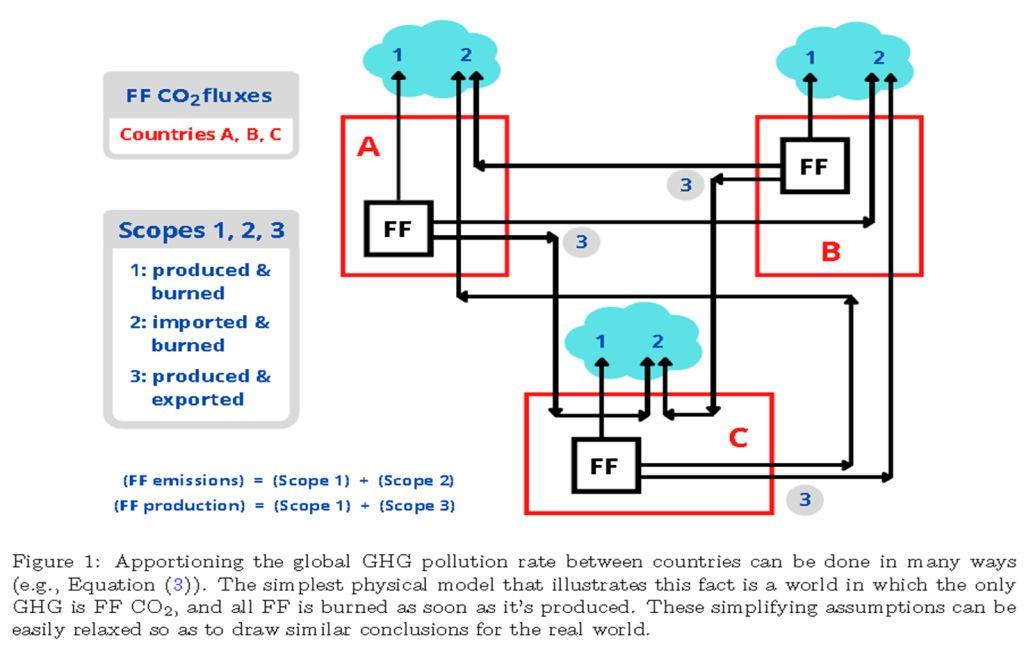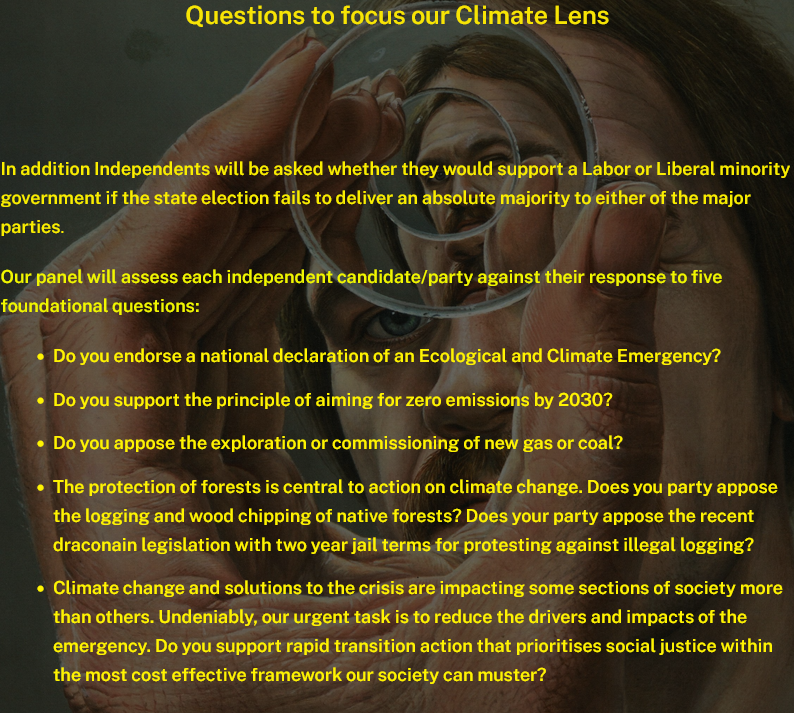VC1’s submission to UN’s First Global Stocktake

Vote Climate One submitted Dr Andrew Norton’s 22 Aug. paper, “Recipe for disaster: ‘We are only responsible for our domestic emissions’” to the UNFCCC’s First Global Stocktake.
Dr Norton is a specialist in theoretical physics and applied mathematics who has applied his analytical mind to issues relating to climate change and its dangers to humanity.
The UNFCCC is the United Nations Framework Convention on Climate Change – The intergovernmental body responsible for COP and IPCC processes relating to the understanding of and acting on the ongoing process of climate change.
The Global Stocktake established in the Paris Agreement (GST) is a process for taking stock of the implementation of the Paris Agreement with the aim to assess the world’s collective progress towards achieving the purpose of the agreement and its long-term goals (Article 14).Decision 19/CMA.1 outlines the modalities and sources of input for the GST.
The Vote Climate One submission states:
3.1 Best available science shows that supply-side action is required [Q5a]
The Paris Agreement has been relying on demand-side action (via emission reduction NDCs) to reduce the global GHG pollution rate. The world’s governments have been too slow to respond. Best available science shows that supply-side action to reduce fossil fuel (FF) production is now also urgently required: it is now physically impossible for reductions in GHG emission rates to alone suffice in preventing the climate chaos and catastrophic environmental losses that will ensue if warming is not limited to 1.5◦C.
3.1.1 Planned over-production of fossil fuels [Q1, Q4]
The Production Gap Report [1] — first launched in 2019 — tracks the discrepancy between governments’ planned fossil fuel production and global production levels consistent with limiting warming to 1.5◦C or 2◦C. Key findings of the 2021 report (page 4) include,• “the world’s governments plan to produce more than twice the amount of fossil fuels in 2030
than would be consistent with limiting warming to 1.5◦C”
• “Global fossil fuel production must start declining immediately and steeply to be consistent
with limiting long-term warming to 1.5◦C”
The question of which countries need to take action on fossil fuel production is answered in the report (March 2022), Phaseout pathways for fossil fuel production within Paris-compliant carbon budgets [2].
From the Headline Finding on page 6: Based on a 50:50 chance of not exceeding 1.5◦C,Read the complete submission…..
• “The report makes absolutely clear that there is no capacity in the carbon budget for opening
up new production facilities of any kind, whether coal mines, oil wells or gas terminals.”
• “A transition based on principles of equity requires wealthy, high-emitting nations to phase
out all oil and gas production by 2034 while the poorest nations have until 2050 to end
production.”
The bottom line is that:
the Federal Government is still planning to rapidly expand Australia’s FF production and FF exports:
• There are 114 fossil fuel major projects in the Australian Government’s approvals pipeline [4]
• The report (May 2022), “Carbon Bombs” – Mapping key fossil fuel projects [5], finds that Australia is planning 23 of the world’s 425 carbon bomb projects (each exceeding 1Gt CO2).
When Prime Minister Albanese was recently asked why Labor would not consider the Greens policy of “no new FF mines”, the final point he made to terminate the discussion was that the UN, “measure emissions based upon where they occur, not where the product comes from” [6].
Similarly, when Australia’s new Environment Minister, Tanya Plibersek, was asked if the fastest way to reduce emissions wasn’t simply to say “right, no more coal mines”, she was obliged to reiterate Labor’s position [7]:“We are responsible for the carbon pollution that we emit here in Australia.” [i.e. Our governments have no responsibility for Australian produced carbon that is burned overseas….]
Read the complete submission…..
Both Federal and State governments have many levers available to them that could stop or reduce the production of fossil fuels, irrespective of their claims (or not) to be working to reduce or eliminate fossil fuel emissions that are driving the climate towards lethal runaway global warming. Clearly, both major political parties are still working hand in glove with the special interests to keep the fossil fuel industry growing through subsidies and permitting activities.
This is likely to continue as long as the special interests’ supporters are comfortable that they can work for their patrons and still get re-elected. This cozy connection between Parliamentarians and the fossil fuel industry will continue until the puppets are replaced by genuine representatives of voters who care about the future of our climate and the world their children and grandchildren will live (or die) in.
Stopping and reversing global warming is the only issue that really matters
There is a vast array of scientific and observational evidence showing that not only is the world growing ever warmer (thanks to the profligate burning of fossil carbon beginning with the Industrial Revolution), but that we have now warmed our planet enough that we are beginning to cross ‘tipping points’ for a number of positive feedback processes in the Earth System that will continue driving temperatures still higher even without further human intervention. Once positive feedback takes control of the thermostat, Earth’s temperatures will continue rising at an accelerating rate in a runaway global warming process until semi-stable ‘Hothouse Earth’ temperatures are reached. These temperatures will like be too hot and be reached too fast for large slowly reproducing organisms like humans to survive. The result will be our planet’s 6th global mass extinction event. At least two or three of the previous mass extinction events in our fossil record also seem to have been the result of runaway global warming.
Note: Straightforward laws of physics will produce this result unless humans can stop and reverse the process – and we are approaching a point of no return where no conceivable human intervention will be able to stop the feedback process before the fuel is exhausted or the system self-destructs.
Given that we are major users and producers of greenhouse gas emitting fossil fuels, we have to take the responsibility to do something about this….
We need to turn away from the the Apocalypse on the road to hothouse hell, and we won’t do this by continuing cosy relationships with fossil fuel producers and consumers.
In our present situation where most of our governments are still supporting and even funding fossil fuel production and use, the most effective actions we can take as individuals is to change our governments to prioritize action on climate change above all other things. Nothing else matters if we have no future….
States are probably even more important than the Federal Government where climate action is concerned
States enable and regulate mining and production of fossil fuels, and many of the important sources of emissions. Planning, industrial, rural, public safety and others are all primarily state concerns where political and administrative decisions may have considerable impact on regulating carbon emissions. Thus, if you are concerned to influence how your state acts in relation to the climate emergency, you need to elect representatives who will do this rather than bow down to wealthy patrons and vested interests who want to protect their short-term profits rather than humanity’s longer-term future.
The Victorian state election on 26 November is our next opportunity to begin focusing our state parliaments on the need to prioritize climate action. For Victorian voters, this may be the most important vote you ever make: Do you support major parties in their business as usual financial and regulatory support of the fossil fuel industry, or will you vote for a party or independent who is clearly focused on promoting and facilitating climate action?
Applying your decision to preferential voting on the ballot
If you believe that our present Labor government will govern in your interests rather than protecting and supporting their patrons in the fossil fuel and related industries, then go with the flow and don’t concern yourself with the likely consequences of going down their fossil fueled road towards runaway global warming. On the other hand, if you think it is better to work for a sustainable future where your children and their children can hope for a happy future, Vote Climate One can help you elect a government that will actively lead and support this effort.
Our Climate Lens Traffic Light Assessment process will help you to do this most effectively in both houses of Parliament. Also, our Climate Sentinel News provides access to factual evidence about the growing climate crisis to support your thinking, In the May Federal Election, our Traffic Light Voting System made it easy to use factual evidence about where each candidate in your electorate ranks in relation to their commitment to prioritize action on the climate emergency. We have modified this for the Victorian State Election in November.

Featured Image Fig. 1 from Dr Norton’s submission to the UN’s Global Stocktake for the Framework Convention on Climate Change (COP 27, etc.). Shows that when a country like Australia produces fossil fuel, the carbon emissions from that fuel end up in the atmosphere, wherever in the world